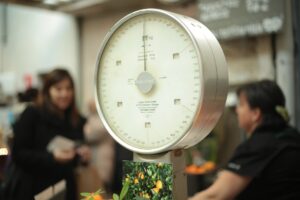
Scale calibration is an important part of maintaining accurate measurements of items.
It may not seem like a big deal to have your scales calibrated, but the reality is quite different. Poor scale calibration is often one mistake that will not be taken lightly in an industrial setting since it can lead to huge losses, including financial. Calibration is the process of evaluating and verifying a scale’s ability to weigh accurately and reliably by performing a series of thorough, industry-standardized tests. After all, scales are a technology, which has tendencies to wear out over time. Here’s why annual scale calibration should not be taken lightly and instead should be treated as an integral part of its maintenance.
Why is Scale Calibration Necessary?
Scale calibration ensures that your scale is working as intended. While there will normally be nothing wrong with your scale, a scale calibration is a good indication process to partake in to determine any possible weighing problems. As a scale continues to be used, the more inaccurate it’s weighing skill becomes. This is simply due to being a technology that becomes worn after time. There is also a number of environmental factors that can affect the accuracy of a scale, such as heat and humidity. Luckily, instead of replacing the scale entirely, annual preventative maintenance plans can help to reduce weighing errors and lead to longer life of a scale,
Benefits of Accurate Scale Calibration
The most important part about scale calibration is that it prevents deviation from accepted weighing standards. When items are not being weighed accurately, the risks involved increase exponentially. This includes:
- legal risks for not being within required weight limits
- financial risks for over/underselling items by weight
- physical problems with transport, such as with transporting via airplane or boat
- customer service and public relations issues that may arise from the above problems, or even just from inaccurate weights
- may paint a negative image in your brand that will be hard to recover from
All of these risks can be massively reduced by simply completing a scale calibration every few months.
Industry-Specific Scale Calibration
Industries that commonly use scales or balances will need to routinely calibrate their equipment. Any commercial company selling products for money and using a legal for trade scale will need to perform annual calibration. Virginia Weights & Measure check to make sure scales are legal for trade, up to date in calibration and are registered with the state. You will see these types of scales in grocery stores, candy shops, produce markets,etc. Another example, vehicle weighing industries often use weighbridges to measure how much weight a car or truck takes up. A weighbridge is essentially a larger, permanent scale and requires scale calibration like any other scale. If not properly maintained, a scale can lead to any of the problems listed above or more. In addition, customers might end up being charged more if there are any fees calculated by weight.
CONTACT THE SCALE PEOPLE FOR PLACED IN SERVICE / LEGAL FOR TRADE CALIBRATION SERVICES IN VIRGINIA BEACH!
Since 1956, The Scale People have earned a reputation as the finest service provider for calibration and repairs of weighing equipment in the mid-Atlantic area. Our sales team can help work with you to find the best weighing equipment for your application. We currently have offices in Columbia, MD, and Newport News, VA, but we offer our services nationwide. Over the years, we have built up a long list of satisfied clients from a wide variety of industries, including pharmaceutical, food and beverage, and government manufacturing. We are a fully ISO/IEC 17025:2017 accredited service company offering calibration of scales, balances, pipettes, dynamometers, pad scales, moisture analyzers, test weights and more. All of our services have a 100% satisfaction guarantee. We’re only a phone call away at +1 (800) 451-9593. To learn more about what we do, follow us on Facebook, Twitter, and LinkedIn.
